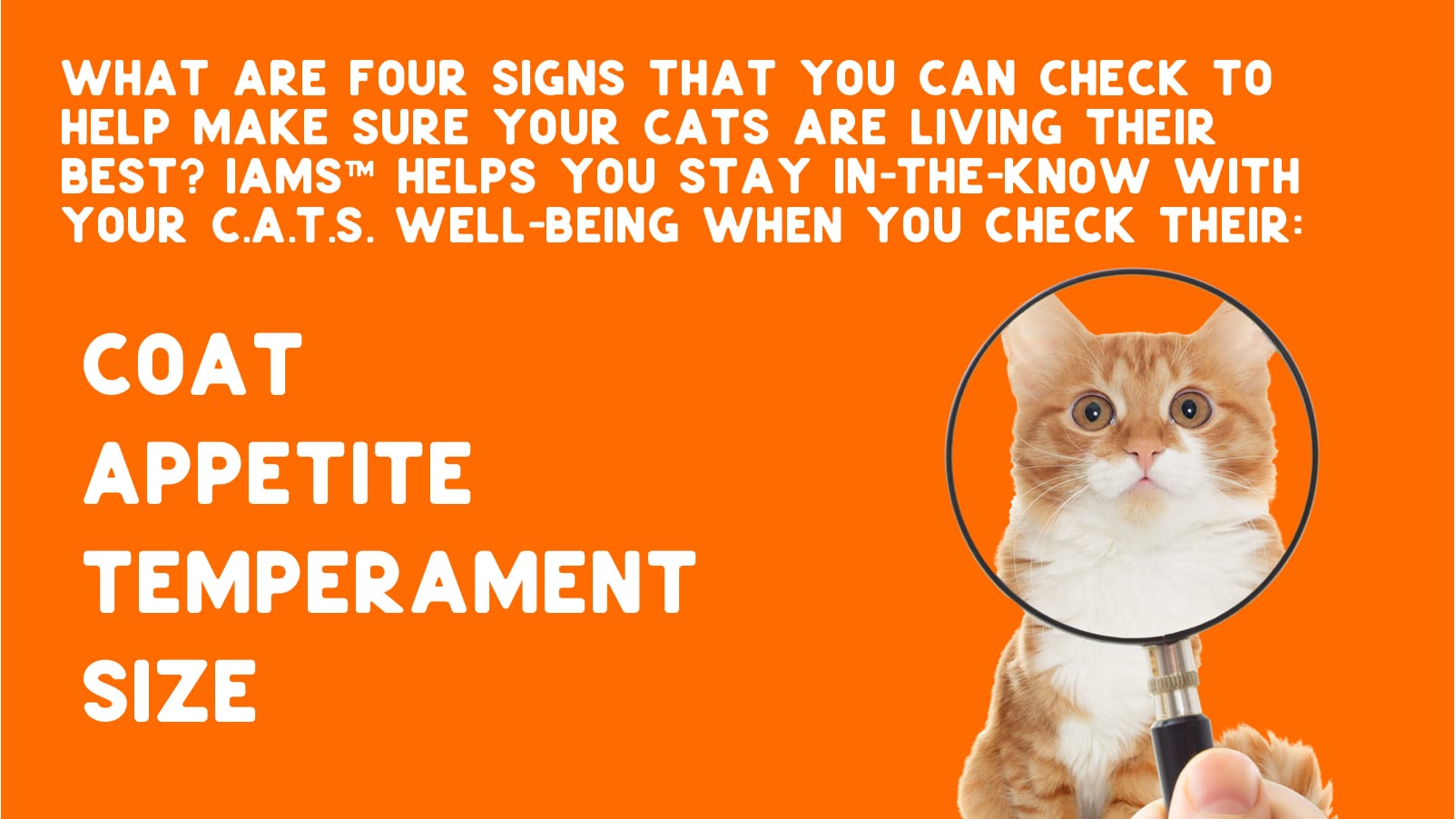This content was produced for IAMS by the foundry @ Meredith Corp. DailyPaws editorial staff was not involved in its creation or production.
Poor misunderstood kitties—compared to the rest of the animal kingdom, they get a bad rap. Sure, cats can be moody, stubborn, aloof, particular, and mischievous, but lazy—the most popular feline moniker of all—is also the most incorrect. In fact, cats are anything but.
According to Dr. Angela Hughes DVM PhD, the Science Advocacy Senior Manager at Mars Petcare, "Even more so than dogs, cats sleep a lot during the day in order to reserve their energy.” Sleep is essential to their health and well-being, both mentally and physically. Read on for tips to ensure your cat gets plenty of shuteye.

Having a comfy spot—or spots—for cat naps, or to hunker down for the night, is key to supporting your cat's rest ritual. Some kitties love to burrow into soft, cave-like dwellings, while others want an extra plush cushion to knead. Heated beds are a great option for older cats, especially if they're arthritic and especially if you live in a colder climate. Make sure to consider your cat's size compared to the size of the bed. You'll want to find something cozy to offer security, but roomy enough for your cat to sprawl out. And don't worry, there are plenty of aesthetically pleasing options out there that'll suit your taste, too.

Start by placing beds in places you know your cat likes to nap and hang out. If he sleeps on the top of the sofa, consider hanging a shelf above the area so he has a place that's all his own. Height is key for most cats—they love to be able to keep watch of their domain from a perch—so placing beds and cushions off the ground will provide additional comfort. Most cats spend a lot of time surveying the outdoors, so a window spot (there are even options that suction to glass) with a view for napping or bird watching is another great option.

Not only is a clean bed extra comfy for your kitty—it's important for your entire household's health as his sleeping spots have the potential to become a breeding ground for mites, fleas, bacteria, and parasites. Be sure to toss blankets, cushions, and other bedding into the wash every couple of weeks and launder with hot water. Opt for a pet-safe, unscented detergent since fragrance and chemicals can cause a reaction to sensitive skin.

If you feel like your cat is sleeping too much, consider his age, activity level, and weight. Is he getting enough stimulation and playtime? Is he overweight? Making smart dietary choices is key, and they can affect his overall well-being and sleep. IAMS™ offers diets formulated with Lcarnitine to help burn fat and maintain a healthy metabolism. For dry food, check out IAMS™ ProActive Health™ Indoor Weight & Hairball Care or for a wet food alternative, IAMS™ Perfect Portions™ Optimal Metabolism Chicken Paté. Both provide healthy metabolic support and are great options for your cat. If your cat is sleeping too much, or if it seems like he’s hiding, less active than usual, or lethargic, these could be signs that he’s not feeling well and you may want to consult your veterinarian.

That's right, cats are neither nocturnal (active at night) like bats and owls, or diurnal (active during the day) like humans and dogs. Cats are considered to be crepuscular, meaning they're most active during the twilight hours—just after sunset and before sunrise. The good news is you can ease your domesticated cat closer to a schedule like you have. Feed him a nutrient-rich meal in the evening to lessen his natural hunting instincts and make sure he gets plenty of play sessions during the day to keep him active. Keep it Clean Easy Listening

Sleep is vital for a healthy immune system. Cats instinctively know this and practice this essential ritual. The amount of sleep each cat needs is different and depends on a variety of factors like age, temperament, and health. Newborn kittens can sleep nearly 90 percent, or 22 hours, of their day. And as they mature, kittens still clock in 16-20 hours of shut-eye, while adult cats generally average a healthy 15 hours of z’s. Again, cats aren't lazy—the need for massive amounts of sleep is part of their physiology and, ahem, something we humans should consider taking note of. Let your cat be your role model!

It's been scientifically proven that cats can be comforted by music, so if you're looking to help your stressed kitty relax, or help lull him to sleep, turn on some soft tunes. While there is music specifically composed to appeal to cats' ears that mimics the suckling and purring sounds kittens first hear postpartum, you can experiment with your own library. Try to play calming melodies that might soothe a fussy baby or meditative sounds that you might use to help fall asleep.
A healthy cat is a happy cat, so make sure he gets plenty of rest and enjoys a nutrientrich, premium diet to support his needs. For more info, visit IAMS.com and the IAMS cat food selector.





